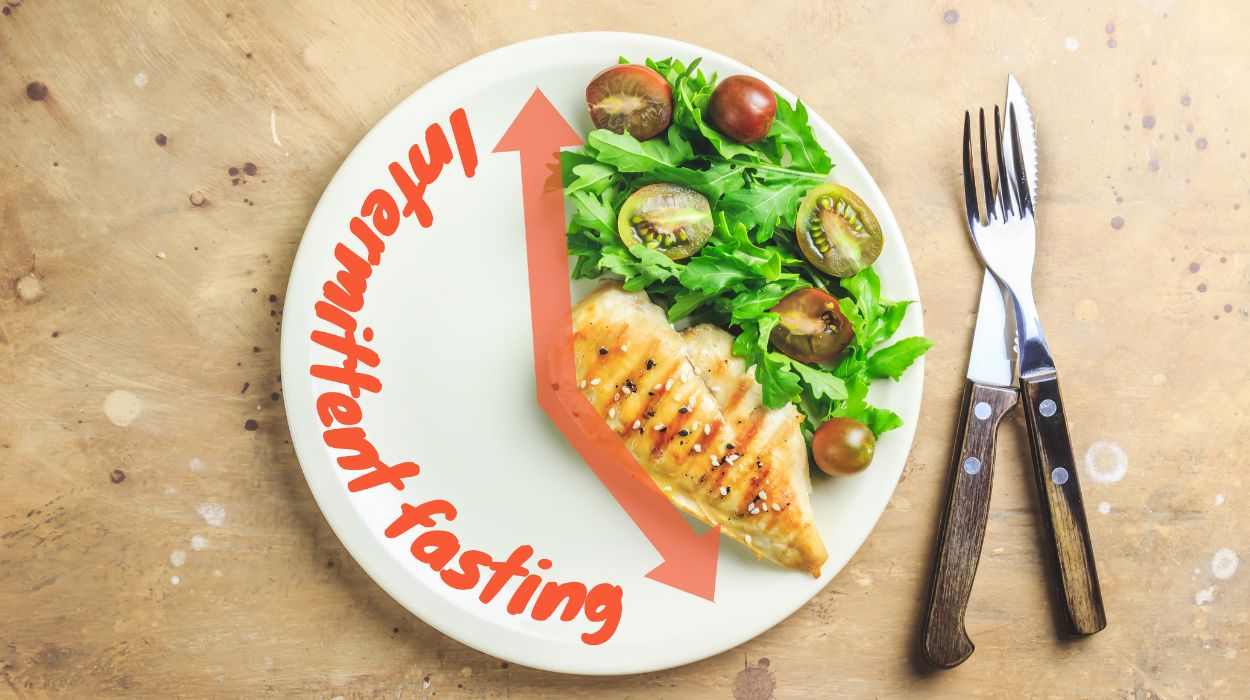Two of the most popular strategies for weight loss in recent years have been ketogenic (keto) diets and intermittent fasting. While the strategies seem quite different – keto focuses on what you eat, while intermittent fasting focuses on when you eat – they work according to the same underlying mechanism. By depriving the body of carbohydrates, keto, and intermittent fasting force the body to burn fat for energy rather than glucose (blood sugar).
Since the focuses of keto and intermittent fasting do not overlap, some people have begun to experiment with using both strategies simultaneously. The approach consists not only of restricting one’s diet to mostly fat and protein but also restricting the consumption of such a diet to a few hours a day. What are the benefits and risks? You can find out below.
Health Benefits Of Intermittent Fasting Keto Diet
- More Rapid Weight Loss
- Faster Adaptation To Ketogenic Diet
- Faster Adaptation To Low-Carb Diets
Keto And Intermittent Fasting Benefits
More Rapid Weight Loss
While there is not much evidence yet, there have been reports indicating that the combination of intermittent fasting with keto can result in more rapid loss of body weight. This outcome makes sense: both approaches cause the body to use fat stores, and intermittent fasting adds a calorie deficit to the mix. In this way, the decrease in calories complements the deficit in carbohydrates.
Faster Adaptation To Keto
Among the complaints heard from some people starting keto is “keto flu”, which is a group of symptoms (nausea, fatigue, difficulty sleeping) within 2-7 days of beginning a ketogenic diet. It is believed to be a side effect of the body adapting to the new diet, and it normally resolves within a week. There is some evidence that combining intermittent fasting with keto can shorten this adjustment period.
Faster Adaptation To Low-Carb Diets
Many people eat high-carb diets, and it can be difficult for these people when they begin a keto diet, which is by definition extremely low in carbs. Fortunately, the addition of intermittent fasting has been reported to result in a more leisurely time overall adjusting to the drop in carbs. Craving is said to be less common, resulting in a greater likelihood of sticking to the diet.
Why Combine Intermittent Fasting With Keto?
The logic behind combining intermittent fasting with keto is that the two approaches can complement each other, resulting in the burning of even more fat than either strategy alone. If the body enters a ketogenic state during the fasting period of an intermittent fasting schedule, then once you start eating again, it will revert to using glucose for energy rather than fat. However, if the diet you eat during the eating window is one that provides very little in the way of sources for additional glucose, then the body will return to ketosis much sooner.
What Is The Keto Diet?

A keto diet is one in which the vast majority of food intake comes from fats and protein, with the intake of carbohydrates kept to a small percentage. Generally, the breakdown of the macronutrients eaten while on keto consists of around 60% fats, 30% protein, and 10% carbs. Depending on whether one exercises regularly and the specific weight loss goal being considered, these percentages might be larger or smaller.
One of the bigger challenges with a keto diet regimen is finding the right foods to meet the macronutrient proportions that the diet requires. Some people find mobile apps for smartphones very helpful in this regard. Signing up for a keto meal delivery plan, or trying keto pills, can also take some of the guesswork out of it for you.
What Is Intermittent Fasting?

Intermittent fasting is an approach to eating in which food is only eaten for time-restricted eating periods (called an “eating window”) and nothing is eaten during other times. Approaches to intermittent fasting are based on how long the eating window and fasting period last. For instance, some people fast 16 hours daily and eat a consistent number of calories every day for the remaining 8 hours. Others will alternate between eating and fasting days, with fasting days allowing 25% of the normal daily calorie intake. Still, others might abstain from eating entirely on fasting days.
The results from intermittent fasting vary. Some people will see results in the first 1-2 weeks on the weight loss diet. More realistically, it will take 2-10 weeks to see more significant results. Moreover, adding a keto diet to your fasting plan could result in greater weight loss happening sooner.
How Does Intermittent Fasting Work?
Intermittent fasting works according to the same principle as the keto diet – by depriving the body of carbohydrates, you force the body to use existing fat stores for energy, rather than using glucose, like it normally does. The state that the body enters is called “ketosis” and is named for the protein that is found in the blood when the liver breaks down fat. The word is where the keto diet gets its name.
A very effective way of getting the body to begin using fat for energy rather than glucose is to drive the glucose level down. Intermittent fasting does this by depriving the body of sources of glucose. As the body consumes its fat stores to power it, your fat body mass decreases, and as a result, so does your weight.
The Risks Of Intermittent Fasting And A Ketogenic Diet
General Precautions
As with any diet, there are risks with combining intermittent fasting with keto. In fact, the risks are compounded because the risks of one do not offset the risks of the other. Most importantly, certain medical conditions – specifically diabetes and pregnancy – contraindicate intermittent fasting and keto diets because of concerns about blood sugar control. To be on the safe side, you can always discuss your diet plans with a physician.
Hypoglycemia
Hypoglycemia,[1] or low blood sugar, is a condition in which the level of glucose in the blood falls below a safe level. Symptoms include rapid heartbeat, sweating, anxiety, and dizziness. Since both intermittent fasting and keto cause the body to deplete glucose, hypoglycemia is a risk for both. If you are susceptible to experiencing low blood sugar, it’s probably not a good idea to combine these dietary approaches.
Conclusion
While it’s not for everyone, the combination of intermittent fasting with a keto diet can work for some people. The two approaches together eliminate body fat more quickly, resulting in potentially greater weight loss in a shorter amount of time. Provided your baseline health is good and you listen to your body regarding possible side effects, combining keto and intermittent fasting could be a potential game-changer where weight loss is concerned.
Frequently Asked Questions
Intermittent fasting is when you restrict your food intake to certain hours of the day or certain days of the week.
A keto diet is one in which fat and protein make up an especially large percentage of calorie intake, while carbohydrates make up very little.
Yes, it is safe provided you take the proper precautions and are mindful of any side effects. Talk to a doctor if you’re unsure.
No diet is a guarantee, but there is evidence to suggest that the combination of keto and intermittent fasting is more effective than either alone.
 Expert's opinion
Expert's opinion